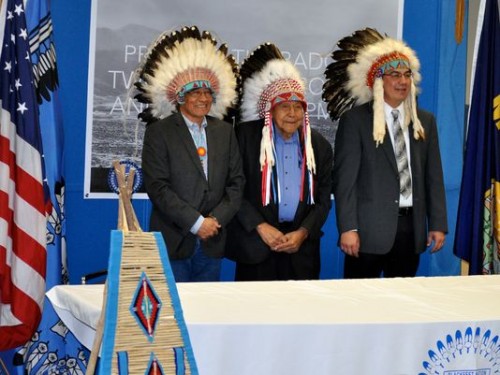Source: Press Release, United States Department of Agriculture
WASHINGTON, June 22, 2015 – Agriculture Secretary Tom Vilsack today announced the availability of $17.5 million in financial and technical assistance to help eligible conservation partners voluntarily protect, restore and enhance critical wetlands on private and tribal agricultural lands.
“USDA has leveraged partnerships to accomplish a great deal on America’s wetlands over the past two decades, Vilsack said. “This year’s funding will help strengthen these partnerships and achieve greater wetland acreage throughout the nation.”
Funding will be provided through the Wetland Reserve Enhancement Partnership (WREP), a special enrollment option under the Agricultural Conservation Easement Program’s Wetland Reserve Easement component. It is administered by the Natural Resources Conservation Service (NRCS). Under WREP, states, local units of governments, non-governmental organizations and American Indian tribes collaborate with USDA through cooperative and partnership agreements. These partners work with willing tribal and private landowners who voluntarily enroll eligible land into easements to protect, restore and enhance wetlands on their properties. WREP was created through the 2014 Farm Bill and was formerly known as the Wetlands Reserve Enhancement Program.
Wetland reserve easements allow landowners to successfully enhance and protect habitat for wildlife on their lands, reduce impacts from flooding, recharge groundwater and provide outdoor recreational and educational opportunities. The voluntary nature of NRCS’ easement programs allows effective integration of wetland restoration on working landscapes, providing benefits to farmers and ranchers who enroll in the program, as well as benefits to the local and rural communities where the wetlands exist.
Proposals must be submitted to NRCS state offices by July 31, 2015. Projects can range from individual to watershed-wide to ecosystem-wide. Under a similar program in the 2008 Farm Bill, NRCS and its partners entered into 272 easements that enrolled more than 44,020 acres of wetlands from 2009 through 2013. Most of these agreements occurred through the Mississippi River Basin Healthy Watersheds Initiative (MRBI). Through partnerships, MRBI identifies high-priority watersheds where focused conservation on agricultural land can make the most gains in improving local, state and regional water quality. The new collaborative WREP will build on those successes by providing the financial and technical assistance necessary for states, non-governmental organizations and tribes to leverage resources to restore and protect wetlands and wildlife habitat.
Through WREP, NRCS will sign multi-year agreements with partners to leverage resources, including funding, to achieve maximum wetland restoration, protection and enhancement and to create optimum wildlife habitat on enrolled acres. WREP partners are required to contribute a funding match for financial or technical assistance. These partners work directly with eligible landowners interested in enrolling their agricultural land into conservation wetland easements.
Today’s announcement builds on the roughly $332 million USDA has announced this year to protect and restore agricultural working lands, grasslands and wetlands. Collectively, NRCS’s easement programs help productive farm, ranch and tribal lands remain in agriculture and protect the nation’s critical wetlands and grasslands, home to diverse wildlife and plant species. Under the former Wetlands Reserve Program, private landowners, tribes and entities such as land trusts and conservation organizations enrolled 2.7 million acres through 14,500 agreements for a total NRCS and partner investment of $4.3 billion in financial and technical assistance.
The funding announced today was authorized by the 2014 Farm Bill, which builds on historic economic gains in rural America over the past six years, while achieving meaningful reform and billions of dollars in savings for taxpayers. Since enactment, USDA has made significant progress to implement each provision of this critical legislation, including providing disaster relief to farmers and ranchers; strengthening risk management tools; expanding access to rural credit; funding critical research; establishing innovative public-private conservation partnerships; developing new markets for rural-made products; and investing in infrastructure, housing, and community facilities to help improve quality of life in rural America. For more information, visit www.usda.gov/farmbill.
Visit NRCS’s ACEP webpage to learn more about NRCS’s wetland conservation options.



